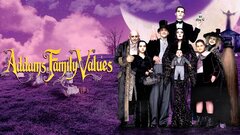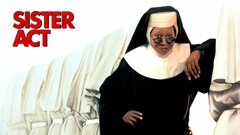Paul Rudnick

Writer
Birth Date: December 29, 1957
Age: 67 years old
Birth Place: USA
A mainstay of New York theater since the early 1980s, the openly gay Paul Rudnick has become a latter-day Dorothy Parker, animating plays, screenplays, novels and a column in PREMIERE magazine (under the pseudonym Libby Gelman-Waxner) with his subversive wit. Soon after graduating from Yale, his off-Broadway debut, "Poor Little Lambs" (1982, starring Kevin Bacon and Bronson Pinchot), received mixed notices but attracted Hollywood attention, although ultimately languishing in developmental limbo before the rights reverted to Rudnick.
The former book jacket blurb writer took a break from playwriting, penning two novels (1986's "Social Disease" and 1989's "I'll Take It") before poking fun at the pretensions of "high art" with the critically-acclaimed "I Hate Hamlet" (1991), inspired by his own move into a Greenwich Village apartment once owned by the late John Barrymore. That legendary drunk could not have been any naughtier than Nicol Williamson, however, whose antics in the play made headlines and alienated cast mates and purportedly led to the show's early demise.
The playwright then enjoyed an even bigger Off-Broadway success with "Jeffrey" (1992), an episodic romantic comedy about a gay man who decides to abstain from sex when the specter of AIDS turns his encounters into nerve-racking negotiations. Naturally, once he is celibate he meets the man of his dreams, who just happens to be HIV positive, with their relationship played out amusingly.
In the early 90s, Rudnick's Hollywood career took off. He provided uncredited script doctoring for the comedy hit "The Addams Family" (1991), his first collaboration with producer Scott Rudin, who generously attributed the film's success to Rudnick's contributions. "Sister Act" (1992), written in 1987 as a bawdy showcase for Bette Midler, was his first produced screenplay, but after Disney watered it down into a vehicle for Whoopi Goldberg, he decided that the finished product was no longer his work and reluctantly agreed on the pseudonym Joseph Howard after the studio nixed "screenplay by Goofy."
Rudnick finally received screen credit for the far superior sequel "Addams Family Values" (1993), the first time mainstream audiences could appreciate his trademark sensibility in uncompromised form. His clever references to incest, sadomasochism and masturbation (a memorable joke about the Addams' pet hand, Thing) managed to fly beneath the MPAA's radar and did not jeopardize the film's PG-13 rating. However, if the public was ready for the rude wit of "Addams Family Values," it was not ready for the openly gay humor of "Jeffrey" (1995), which he adapted (and co-produced) from his play. The material might have sparkled in another's hands, but first time helmer Christopher Ashley (the play's director) struggled with the new medium and failed to take advantage of NYC's gay locales. Best when going for laughs, the film missed the poignancy that had helped make the play a success.
After Rudnick helped Rudin out with some uncredited script doctoring on Hugh Wilson's "The First Wives Club" (1996), the pair teamed again on Frank Oz's "In & Out" (1997), Rudnick's original screenplay loosely inspired by Tom Hank's Oscar acceptance speech mentioning the homosexuality of his high school drama teacher. The "what if" scenario had an award-winning actor (Matt Dillon) "outing" his former teacher (Kevin Kline) just days away from the latter's wedding day. Though the teacher initially denies he is gay, he comes to accept his homosexuality (his swishy ways and passion for Barbra Streisand), thanks in part to a kiss from an entertainment reporter (Tom Selleck). Some gays disparaged the stereotypes, but "In & Out" was a huge crossover hit, playing far better in Indiana (the film's supposed setting) than had "Jeffrey."
Despite his screen success, Rudnick has refused to go Hollywood and continued to live in Greenwich Village and write for the stage. His satire "The Naked Truth" (1994), suggested by the furor over the "pornographic" images of photographer Robert Mapplethorpe, possessed his signature one-liners and an abundance of heart but lacked the polish of "Jeffrey," and he fared better with his next offering for the stage, "The Most Fabulous Story Ever Told" (1998), a gay send-up of religion displaying an oddly reverent tone toward its material. Unfortunately, his "Isn't She Great" (2000), loosely inspired by the life of pulp author Jacqueline Susann, bowed to almost universally bad reviews decrying the overly cloying quality of its direction (Andrew Bergman), acting (Midler, Nathan Lane), script and score (Burt Bacharach).
Credits

Coastal ElitesStream

Coastal ElitesStream

Making the Boys

The Stepford WivesStream

Real Time With Bill MaherStream

Marci X

Isn't She Great

In & OutStream

Theater Talk

Jeffrey

Addams Family ValuesStream

Sister ActStream






